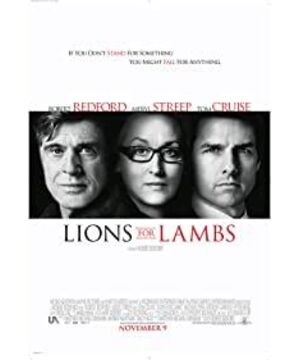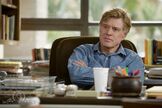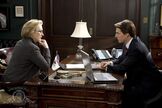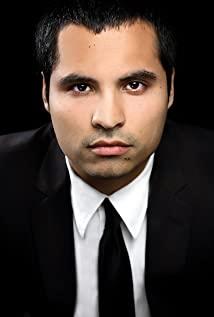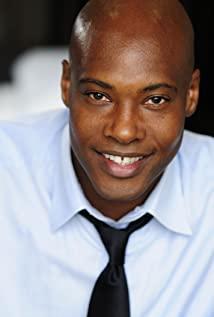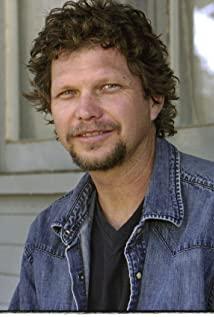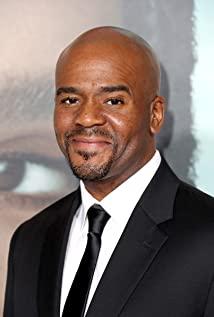The film directed by Robert Redford consists of three interleaved passages: one of the interviews played by the reporter played by Meryls Tripp with the senator played by Tom Cruise, and the second one is Robert ·The dialogue between university professors and students played by Radford. The third is the live situation of the United States on the battlefield in Afghanistan. The central figures are two junior students who volunteered to join the army. They are also students of the professor. Except for some war scenes, the whole film is almost entirely composed of dialogue, but it does not make people feel boring. All the conversations, including interviews with senators by reporters, and debates between professors and students were very exciting. The three paragraphs can be developed into three independent but closely related propositions: Are decision makers trapped in the vicious circle of fighting for war? If the mission of war is to defend justice, can the loss of peace be forgiven? What kind of news should the media report, should the people hear different voices, or should they become the loyal mouthpiece of those in power, or perhaps there is no absolutely true news at all? How should the value of life be manifested? Is it the supreme noble to be prepared for danger in times of peace and to try the courage? It is shameful to be born in peace and contentment with the status quo?
Let me talk about proposition one first. The reporter was invited by the senator to interview him and told her that a new war policy planned by him was about to be implemented. The senator tried to get reporters to promote his new policy in the news to reassure the people, but the experienced reporter knew very well that there was nothing but ambition behind his gorgeous speech. The senator’s remarks were quite provocative, and the reporter’s questions were extremely pungent, making this debate very exciting. The reporter was skeptical of the new policy, while the senator was full of confidence, ignoring the voice of doubt, and asked the reporter impassionedly whether he yearned for a victory? The reporter replied with an indisputable fact: In 1986, "the Viet Cong did not confront us head-on, so we sent small troops in, so that they couldn't help but ambush us so that we could at least fight." Unexpectedly, as soon as this statement came out, it was a painful price of 58,000 tombstones. The senator dismissed history as the past is the past, and he should look forward. To sum up, the mistakes of the past are nothing more than false intelligence, and the decision-makers have never personally participated in the war. When a reporter asked the senator if he had shed blood in the war, his answer was that he had done intelligence work for six years, which was one of the ironies. What is even more ironic is that when the senator tried to advocate how worthy of the new decision, bad news came, and the distant battlefield was defeated.
The United States has gained countless benefits since it intervened in world politics. However, after 9/11, the people realized that this practice also brought great hidden dangers to domestic security. On the one hand, brothers, sons, and husbands shed blood and sacrifices on the battlefield, and on the other hand, the country is plagued by worries, all of which make the anti-war sentiment more and more intense. The senator said: "Six years ago, watching our plane crash into our building, who knows what to do? Do you remember the color of horror in the shadows the next morning, and thousands of deaths from fear since then? People?” But did the war against Iraq and Afghanistan lead to terrorist attacks, or did the terrorist attacks exacerbate the war? It is a vicious circle to start multiple wars for a victory.
The second proposition is the news media. Meryls Tripp plays a senior reporter with forty years of working experience and has participated in countless important interviews. However, the commercialization of the media has also made her subtle, and her true voice cannot be made public. Only "regular" speeches can make the headlines. The ratings are the top priority. The senator accused the media of being too subjective and contributing to the anti-war sentiment, as the chief culprit of public opinion bias. Although she did not buy the senator, after forty-five minutes of debate, she began to reflect: Since when did the news media become more and more commercial? And when did he gradually deviate from his original intention of working? Back at the TV station, she fought with her boss with meager strength, but soon chose to compromise. After all, the whole family still needs to rely on her to feed. It was just that tears burst into my eyes as I drove all the way through the White House and the Martyrs Cemetery. The reporter's conscience is still there, but what if the news is reported as expected? If you do not arrange to join the army, but only listen to the words of the decision makers, where does the truthfulness of the report come from?
The third proposition, is it to be pampered or to be prepared for danger in times of peace? The university professor found out that Todd, a talented student, was repeatedly absent from class, so he invited a conversation, and the third proposition began. Under repeated questioning by the professor, Todd told the truth about the absence of class: the science of politics is not only contemptible, it does not arouse any interest in him. But it is a group of politicians who are hypocritical, fooling the voters, pretending to be public for personal gain, and when they want to stand for election, they cheer up: I will not run for president. (At the end of the interview with the reporter and the senator, the senator also emphasized: I will not run for the president. Another irony) The professor deeply talks about the students’ psychology, patiently enlightens, and the words are enough to make most students ashamed: no personal experience However, how do you know what it feels like, indifference will only make the tragedy that is happening in front of you more tragic. However, Todd is not waiting for idleness, tit-for-tat and reasonable: life is so good, shouldn't you enjoy life and create a better future? If it’s not about yourself, why do you need to intervene? What can you change with your own power? The professor began to talk about the two students who suspended their studies and joined the army: Arian and Ernest. These two students from the third world were born in turmoil and had not benefited from the country, but they were willing to fight for her; while those pampered students “usually took shelter when the country needed them. ". Although he did not support the two men's decision to join the army, the professor praised their fearlessness. It's just that fearlessness, in Todd's eyes, it's just too much adrenaline. Although Todd's thoughtful facial close-up at the end of the film convinced us that he was enlightened, the battlefield encounter between Arian and Ernest posed another question to the audience: If you are full of blood and loyalty to serve the country, you will only get your life in vain. , Then what should be explained? Changing the world is not easy!
"When our soldiers were flying in flesh and blood, they were saying,'The enemy may have beaten us with a long nose, but we are also making progress through our mistakes.'" In sharp contrast to the enthusiasm of the debate is the cruelty on the battlefield. The senator’s new strategy of “selling” has been implemented, and the officer gave the superior order in time. However, behind him, like the soldier, he suspected: “This is not as easy as it seems 9,000 miles away.” A few people were sent to occupy the high ground and were attacked by the enemy. Ernest accidentally fell from the helicopter, and his good brother Arian immediately jumped off the plane. The enemy was close at hand and approaching, the rescue operation seemed so pale and feeble, like a shoe scratching. At the last moment, Arian helped Ernest up: No way! Can't be on your stomach! stand up! At that moment, my eye sockets were instantly wet.
I believe that many people who have watched this film will be impressed by President Roosevelt’s words framed on the wall of the Senator’s office: "If I were to choose between justice and peace, I would choose justice."
After watching the film, I found that there were too many negative film reviews. I don’t understand why. Is it because the many joyous comedies in the Christmas file make people uninterested in this kind of movie? The long dialogue is good, but each paragraph is quite exciting; the connection between the three paragraphs is also the essence of the film. Although it is not enough to score a full mark, I think at least the 80-odd minutes have not been wasted.
The coincidence worth mentioning is that Michael Pena, who plays Ernest, is also the star of another war movie "Man of Good Luck". In the film, the protagonists Ernest and Arian are convinced that the passionate young people will be able to change the world and wipe out the injustices, and they have a beautiful fantasy about the future: free tuition fees, impressive achievements, and extraordinary life experiences. However, this is just wishful thinking. "Man of Good Luck" describes the bleak scenes that these ambitious young people may face after returning to China: those who return from the battlefield with many scars are not treated well, and the cruel reality ensues: the long-unreunited wife is gone. Looking for a new love; the boyfriend who made a mountain alliance and each other on the battlefield was just a lie; being mocked by an unknown person who lacks understanding, it seems that it is difficult to reintegrate into the society. In the end, the three protagonists have no choice but to choose again. join the army. There is a scene in the film that makes me unforgettable: After the protagonist returns to China, while driving, another car passes by and sees an Arab woman wearing a headscarf and looking confused in the car. In a country where people are widely accepted, meeting them is a common occurrence. However, on the barren land they had just left, they were not fighting desperately with this group of people. At that moment, the change in the environment made people feel like a lifetime.
Perhaps "Men of Good Luck" is a bit exaggerated. More soldiers are just as they are shown in "Pot Head", sitting in the desert day and night and spending time fighting against imaginary enemies, and I haven't even seen half of Iraqis until they return home. . Compared to fighting with the enemy, the fear caused by the unknown is much more terrifying.
View more about Lions for Lambs reviews


